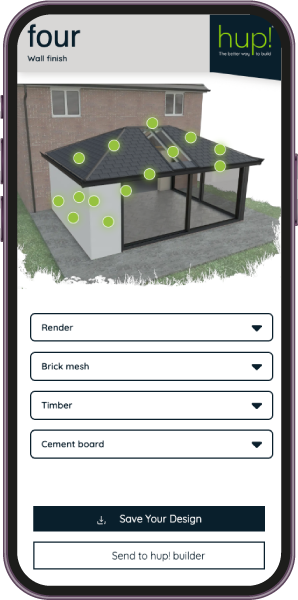Planning a home extension is an exciting time. Whether you’re adding more space for a growing family or creating your dream kitchen-diner, it’s a significant investment—both financially and emotionally. With such a large-scale project, it’s crucial to make sure that your money is protected, your builder is reputable, and that you’re covered if anything goes wrong. There are a number of ways that you can do this, with the key top tips being:
- IBG – make sure your builder provides a quality IBG
- Staged payments – insist on these as part of your contract negotiations
- References – check out as many as you can
- Compare quotes – get into the detail of exactly what will be included
In this blog, we’ll explain exactly more about each of these topics and why they are so important to ensuring a successful relationship with your builder and the delivery of the extension you have planned.
What Is an IBG?
An Insurance Backed Guarantee (IBG) is a specialist insurance policy that protects you in case your builder ceases trading—for example, if they go bust, retire, or otherwise shut down their business—and there’s a problem with the work they carried out.
A builder might offer you a written guarantee for their work (e.g., 10 years), but if their company no longer exists, that promise is worthless. An IBG steps in and honours the guarantee on their behalf. It gives you peace of mind knowing that defects or issues with workmanship will be covered—even if the builder is no longer around.
There are different types of IBG available so it’s important to understand which type your builder is offering and whether it meets your needs:
1.Workmanship (or Installation) Guarantee IBG
- Defects in workmanship (e.g. poor installation of structural components, roofing, plumbing, etc.).
- Only comes into effect if the original contractor is no longer trading (e.g. liquidation or retirement).
What it covers:
- Defects in workmanship (e.g. poor installation of structural components, roofing, plumbing, etc.).
- Only comes into effect if the original contractor is no longer trading (e.g. liquidation or retirement).
Typical duration: 2 to 10 years (5 or 10 years is most common)
Benefits:
- Peace of mind: Even if the builder vanishes, you’re not left with faulty work and no recourse.
- Enhances trustworthiness: Reputable contractors offer these via insurers, signalling professionalism.
- Covers major elements: Includes structural and installation faults depending on the build stage.
2. Deposit Protection Insurance
What it covers:
- Reimburses your deposit or staged payments (we will explain what these are later in the blog) if the builder ceases trading before work begins or is not completed.
Typical duration: Until the work begins or up to 90 days.
Benefits:
- Protects your upfront money: If the builder disappears after you’ve paid a deposit but before work starts, you’re not out of pocket.
- Especially important if paying >10% deposit.
- Some IBGs include deposit protection as standard, others offer it as an add-on.
🏠 Benefits of IBGs to a Homeowner Building an Extension
| Benefit | How It Helps You |
| 🔐 Protection Against Builder Insolvency | If your builder goes bust, you’re not left with unusable work or lost money. |
| 💸 Financial Reimbursement | Recover deposits or repair costs for faulty workmanship. |
| 🛡️ Enforces Workmanship Warranties | You can still claim repairs under warranty even if the builder vanishes. |
| 📜 Increased Resale Value | When selling your home, having an IBG can reassure buyers about recent extensions. |
| ✅ Signals Reputable Builder | Builders who offer IBGs are often vetted by insurers, giving you more confidence. |
🏗️ How to Get an IBG
You can’t buy an IBG directly as a homeowner—only the builder can apply for one through an authorised insurance provider. They must be a registered contractor or trade association member (e.g. FMB, TrustMark, Certass).
- Insurers offering IBGs include:
- QANW (Quality Assured National Warranties)
- HIP (Home Improvement Protection)
- IWA (Independent Warranty Association)
- GDGC (The Guarantee Protection Insurance)
- HomePro
- QANW (Quality Assured National Warranties)
Ask your builder: “Do you provide an Insurance Backed Guarantee, and which insurer do you use?”
You should arrange for the IBG before the start of the project—but it is usually issued only after the work is complete. If you have a policy that includes cover for your deposit or staged payments, ask to see proof of the policy before paying any money, or ring your builders’ IBG provider directly to confirm that your project has been registered and is covered from when you start handing over money. It is also worth doing the same and ringing the IBG provider even if your policy doesn’t cover deposits and staged payments, just to be sure that your builder will be able to provide you with one at the end of the project. Don’t rely on verbal promises – some rogue contractors say they’ll provide an IBG but never do. Getting a clause in writing stating: “An Insurance Backed Guarantee (10 years) will be provided upon completion of the works and is a condition of final payment” is another good idea.
📄 Don’t Make Final Payment Without Receiving the IBG
Insurers only issue the IBG once the job is signed off as complete, but your final payment should be conditional on receiving the certificate.
⚠️ Things to Watch Out For
- Ask your builder if they provide an IBG before signing any contract
- Include in your contract that the final staged payment will be dependent on you receiving the IBG.
- Make sure the IBG is issued by a recognised provider, such as those authorised by the Financial Conduct Authority (FCA).
- Not all IBGs are equal — check:
- Duration of cover
- Coverage scope (e.g. just materials? workmanship?)
- Financial strength of the insurer
- Make sure you receive the IBG certificate in writing once the policy is activated. File it in a safe place with other important documents like your Building Regulation approval
If a builder refuses or avoids the topic of IBGs, that’s a major red flag!
Why an IBG Matters for Your Home Extension
- Protects your investment: An extension can cost tens of thousands—don’t risk losing that money if something goes wrong.
- Covers you even if the builder disappears: If a fault appears after the builder goes bust, the IBG ensures you’re not left footing the bill.
- Adds value: If you sell your home later, having a valid IBG can be an attractive selling point to potential buyers.

Find your nearest
hup! builder
Our nationwide network of fully trained hup! specialists are on hand to guide you through your hup! project from design, right through to completion, in a fraction of the time it would take for a traditional build.
Want to explore design options?
It’s simple to plan your perfect hup! with our easy-to-use online configurator.







